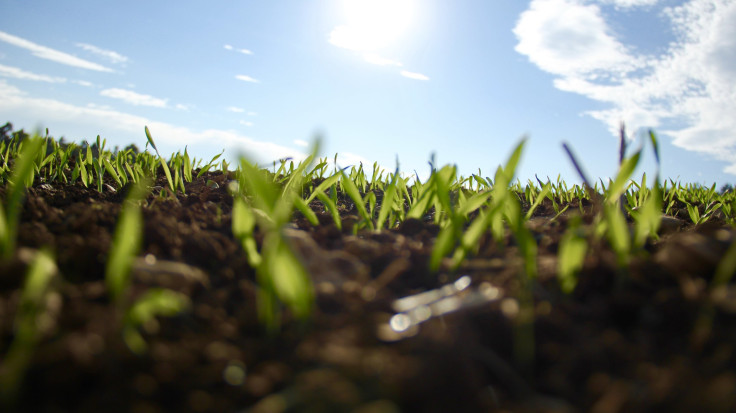Vegan Protein: 6 Plant-Based Sources Even Meat Eaters Will Love

Whether you’re a carnivore, vegetarian, or full-on vegan, increasing the amount of plant proteins in your diet can have major health benefits. Along with the World Health Organization’s (WHO) recent report that links processed meat to a higher risk of cancer, numerous studies have shown a diet higher in plants — and lower in animal products like meat, poultry, and dairy — may improve cholesterol, as well as reduce risk of heart disease and cancer. A recent study published in the journal JAMA Internal Medicine found that high plant protein intake was inversely associated with mortality, even after adjusting for other dietary and lifestyle factors such as physical activity, smoking, and alcohol consumption.
Consumers are catching on, too. According to “Food Formulation and Ingredient Trends: Plant Proteins,” a report compiled by the consumer research firm Packaged Facts, more Americans are demanding quality sources of plant-based proteins. And a separate report released by Mintel found consumers were eating more alternatives to meat products, with at least 70 percent choosing them a few times per week. In Europe, where meat often reigns, meat consumption has decreased by 9 percent in the last 20 years.
In the past, soymilk and tofu were the obvious choices for plant-based proteins. But below are six whole, unprocessed foods growing in demand — and they’re just as good for you.
Peas
Pea protein is rich in all nine amino acids, including the amino acids leucine, isoleucine, and valine — compounds that may aid in post-exercise recovery. Compared to whey protein, which is often chosen for its high leucine content and ability to speed up digestion, pea protein has been found to promote similar gains in muscle growth, making it an ideal choice for athletes. Good old frozen peas can do the trick, but there are also plenty of pea protein powders on the market to choose from as well.
Beans
Beans, unlike meat, boast both high amounts of protein and fiber, making them extra filling. In fact, in a study investigating the satiating effects of the same amount of calories of beef versus beans, ratings for hunger, satisfaction, fullness, and later food consumption were better for those who ate beans. Choose beans as your main protein source for a meal in stews or curries, or sub in mashed beans to burger patties or meatballs to add some filling fiber to traditionally meat-packed meals.
Quinoa
Quinoa is technically a seed, not a grain — which is why unlike other grains it packs all essential amino acids into 1 cup, plus 8 grams (g) of protein. Like beans, it’s also rich in fiber, meaning it’ll help you feel fuller longer.
Lentils
Lentils are packed with protein — just one 1 cup packs 18 g. Due to their filling fiber and protein, they may also help promote weight loss: A meta-analysis investigating the effects of eating pulses (lentils, beans, and chickpeas) found that one daily serving per day led to weight reductions without making any other dietary changes.
Nuts and seeds
Sprinkling nuts and seeds on anything from salads, smoothies, cereal, soup, and pasta is a convenient and healthy way to add small doses of protein to your diet. Depending on the type, nuts offer 3-7 g of protein per ¼ cup; seeds contain 7-12 g. Chia seeds and hemp seeds are particularly high in protein, providing 10 and 12 g, respectively. Hemp protein powder is also a popular pick among athletes for its high quality protein content: ounce for ounce, hemp provides similar amounts of protein to beef and lamb.
Rania Batayneh, MPH, is the author of the best-selling book The One One One Diet: The Simple 1:1:1 Formula for Fast and Sustained Weight Loss. Her book has been featured on "Today," Dr. Oz's The Good Life magazine, the NY Post, and other national outlets. Also known as “America’s Eating Strategist,” Rania brings with her more than 15 years of consulting and coaching experience. She is highly regarded in her industry and is frequently quoted in the media on health matters such as diet, wellness, and weight loss. She works with clients nationwide through her nutrition consulting firm, Essential Nutrition for You. You can follow her on Twitter.



























